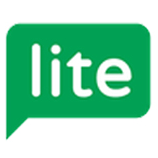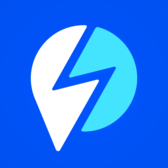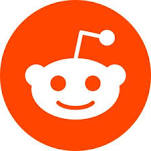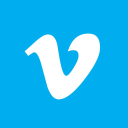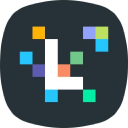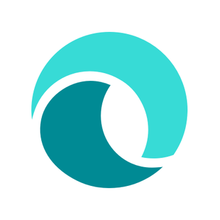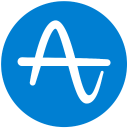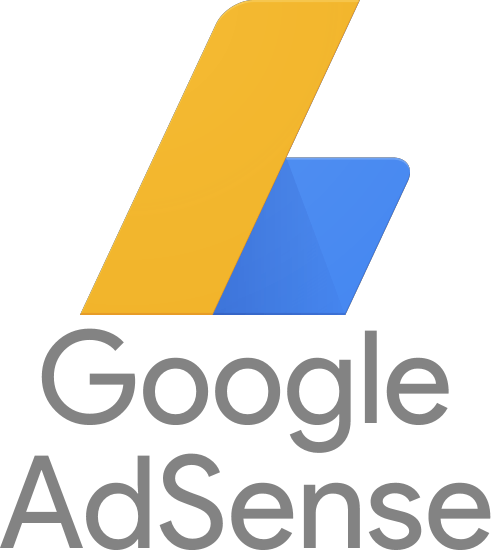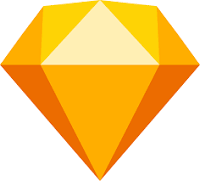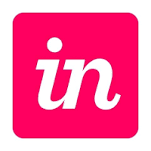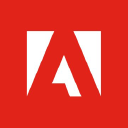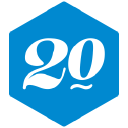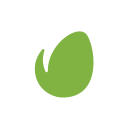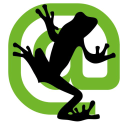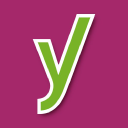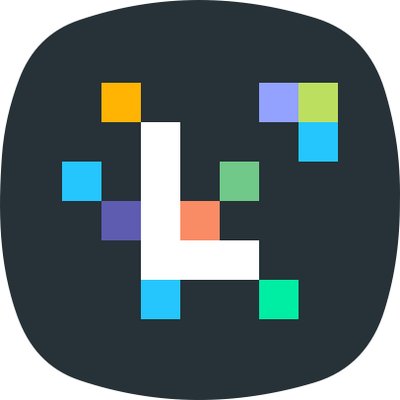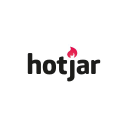
On Launching A Meal Planner App And Pivoting From B2B To B2C
Hello! Who are you and what business did you start?
Hey! I’m Dianne L Chen and I cofounded Arise Performance Labs to make healthy eating simple & accessible for everyone.
Most people struggle to be healthy (myself included). We sweat through hours of exercise, but unfortunately, end up starving or eating back our hard-earned progress!
That’s why we created Ari Coach app - a mindful meal planner that helps you know what to eat to transform your body & habits for life.
We serve a spectrum of people looking to reclaim their relationship with food. People who:
- just started their fitness journey
- workout often and don’t want to waste their effort
- are chronic dieters that want their time & sanity back
No calorie counting or food restrictions. Instead, our app creates dietitian-approved meal plans customized to their eating style and values - such as plant-based, plastic-free, and more. By choosing meals where they feel satisfied and energized, doing a daily habit, and reflecting on why they ate, they’ll be able to sustain healthy behaviors into a lifestyle.
We are currently pre-revenue and recruiting Beta users to try PRO for free. We plan to have a starter plan that will always be free for everyone.

What's your backstory and how did you come up with the idea?
At 24, I climbed up flight stairs - and was suddenly out of breath. I realized I was at my heaviest weight, sitting most of the time, and eating out every other day. Determined to change, I jumped right into keto and cardio classes. Spoiler alert - it didn’t work. Next, I exercised like crazy while under-eating at the ill advice of my trainer. Burnt out, I decided to track calories & macros. For 18 months, I spent hours calculating and logging my food. Although I had lost 30 lbs, I could NOT keep up the lifestyle anymore.
I wanted a way to eat healthily and get results without the daily food obsession, logging, and time spent calculating recipes to fit the numbers.
That’s when I thought - what if there was an app that answered “what, when, and how much to eat”? Especially for workout days. One that took care of macro-planning, carb-cycling, and nutrient-timing for my body type & goal. An app that helped me practice mindful eating.
I became a certified Nutrition Coach from Precision Nutrition and earned certifications in Nutrition & Behavior Change from IDEAFit, and Plant-based Nutrition from eCornell. Drawing from my tech experience, business degree, and nutrition coaching, I set out to simplify healthy eating & mindfulness in a way that was actionable and easy to do.

Take us through the process of designing, prototyping, and manufacturing your first product.
I partnered with Khoa Ngo as my technical cofounder and collaborated with Melissa A. Mathes MPH, RDN, CSSD - an expert dietitian, and Keith Chambers - a master level trainer.
Initially, we wanted to serve high-school & collegiate athletes, as they had the most incentive to focus on nutrition. We spent 8 months interviewing hundreds of athletes & coaches, running a small pilot with a rough website MVP, and then prototyping in the Grid110 incubator.

During that time I left my high-stress tech job and started freelancing part-time in both product design and nutrition coaching. All my free hours were spent working on the app and business models.
For the early team MVP, we built on Keith’s experience as a head coach, Melissa’s expertise on sports nutrition, and interviews with athletes. It was a complex project, as there were two users - athlete & coach, with up to 3 different customers who would actually pay for it - the coach, parents of an athletic foundation, or the athletics director. We decided to launch a functional MVP system for teams - which I designed in two months with user feedback and Khoa built it in 3 months:
1) Web dashboard for Coaches
2) Workout & Nutrition app for athletes
3) Communication App looping in parents & school officials.
Unfortunately, we found the sales cycle too long and too seasonal, with coaches being the main gatekeepers and either unreachable or deeply rooted against any change.
It was time to pivot.
Ari Coach app rose from the learnings of the previous B2B app and feedback from beta users. We wanted to focus on people looking to get healthy - coincidentally also a multi-billion market. I user-tested our initial designs with people who had some workout experience but were not actively competing as athletes.

I saw early on how users expected a higher level of refinement in the experience and in the features they wanted. Of course, we prioritized and vetted feature suggestions based on my larger vision to support people on their journeys. I designed everything myself in Sketch & Invision.
If you’re not technical yourself, ask friends or friends of friends for their recommendations. Often-times the more expensive developers are worth more than their rate, even for a consultation.
Describe the process of launching the business.
I had secured a round of private funding for full-time development work. We had enough runway after the first iteration to work on our pivot.
The app went through a branding transformation to make the name friendlier and shorter for the app store. And also because a similar name was already on the app market. During our brainstorms, I purchased 10+ different domain names until we finally chose Aricoach.com (we also have aricoachapp.com as a redirect).
For our marketing website, our target audience and traffic were mobile-first from the get-go. Trends and analytics from our previous site showed 60-75% coming from mobile. I found that writing the content with SEO in mind took the longest to do, as I could always adjust the design to the content quickly. This version of the site must have gone through 20 content revisions. Yet, I still have a few more rounds of revision to make the brand and voice more cohesive and on target for SEO.
Key takeaways
- Make your customer the hero of the story (Great One-liner exercise from Storybrand)
- Talk about the benefits, not features
- Start your SEO strategy while designing the site - it informs you on what pages to create and how to write the content
Example of how our brand evolved -


Since launch, what has worked to attract and retain customers?
For alpha testing of the Ari Coach app, we asked friends for referrals to 3 other friends that work out or were starting their fitness journey. I’d then ask the referral for their 3 friends. That helped us branch out a few circles away from our own network.
On our current Beta user recruitment, I researched running managed ad campaigns but the cost per lead didn’t justify the return at this stage. Plus, then we’d have to divert resources to A/B testing copy & images/videos and analyzing traffic. We want to try reaching out through referrals, our social media, Facebook groups, and beta platforms first. Just posting through my personal network has garnered 2000+ impressions in our first week alone.

My current strategy is on community-building, getting case studies, and referrals. We invite users to support each other on their goals in our private Facebook group. Plus, we offer one-year of PRO if 3 of their friends join the free Beta. For every Beta sign-up, we also donate rice to children in crisis with B1G1.
Our similar competitors are in their scaling phase, where they run ads everywhere. Some key tactics that worked for them were focusing on acquiring large user bases like private gyms and studios, as well as referral incentives. This is something we could feasibly try later on when our product is ready for scale.
How are you doing today and what does the future look like?
We are launching Beta in March! We’re working through content strategy, email sequences, and community-engagement plans.
Our team is still really small, with only one of us full-time on the project. We are a 100% remote team and have built processes to support and grow a remote infrastructure. That also means there are some cost-savings built-in.
So far our expenses are roughly:
- Legal work $10,000
- Workout video filming $10,300
- Database hosting $25/mo
- Github $7/mo
- Apple developer account $99/year
- Google Play account $25
- Insurance provider $30/mo
- Payroll & tax provider $45/mo
- FT & PT Team members $2600-3000/bi-mo (with taxes)
- Nutrition software $99/year
- Gym benefits $53/mo
- Design $0, because I’m doing it all myself
- Office $0, since we’re all remote
I’m working part-time at a product job & part-time nutrition-coaching to sustain the business. Depending on our public launch later this year, I may have to fundraise some more or ideally transition to full-time on Ari Coach.
The larger vision for the business is to be able to provide support for healthy eating no matter where the person is in their journey. Whether this is 1-on-1, group setting, or specialized for their situation, I want Ari Coach to end the frustration of not knowing what to eat for workout goals.
Through starting the business, have you learned anything particularly helpful or advantageous?
Detail out your sales cycle
For our first business model, we had multitudes of coaches verbally say they were interested, when in fact it was a nice-to-have. Have potential customers put money down in Pre-orders (or LOIs in the worst case) - I would have found out sooner than the coach/team model wouldn’t work for us and saved 4 months of work.
No plan survives first contact with users and customers. You need to identify critical risks in your business model before anything else.
For non-tech founders - get a 2nd opinion
If you’re not technical yourself, ask friends or friends of friends for their recommendations. Often-times the more expensive developers are worth more than their rate, even for a consultation. They’ll get it done right the first time around and communicate effectively. Granted, there needs to be a timeline and check-ins on your product. I’ve had friends who later lament to me that their overseas development team ran off with the money with no product to show for it.
For tech products - share your product backlog from the start
The back-end data structure is very rigid once you have users on the platform, and requires either lots of manual data exports or restructuring of the entire backend for new features that you didn’t account for.
I’m so grateful to have Khoa as a cofounder. His tech resourcefulness and detail-oriented thinking helped round out some of my design gaps. He ended up migrating us from firebase to our new firestore backend.
Learn the legal stuff
I have the good fortune to work with very knowledgeable lawyers Michael & Dan from O&A PC Startup program. They got us set-up as the right entity, navigated how to handle shares & funding, and wrote + reviewed the contracts that we could start with and those we would need further on.
As much as you love your co-founders or early employees, just follow the 1-year cliff vesting schedule. It’ll save you the hassle of legal work in case people leave early - they won’t leave with shares of your company.
Be performance-driven
Regularly check-in on KPIs and goals are written out for each role, especially for paid roles. (This should be done in collaboration with the person in the role.) I hired an early sales associate who ended up not making any connections and hitting any numbers. I was able to terminate the contract early, rather than have it drag on.
What platform/tools do you use for your business?
We used the tools we were most familiar with, that ideally had a free tier to start from.
Basecamp for project management & chat, as we found Slack + Asana too disconnected from each other.
For marketing & design
- Wordpress Divi to visually build our website
- MailerLite for email automation
- Later to schedule social media posts (IG, FB, TW, Pin)
- Google Suite for email, docs, sheets, ppts
- Sketch for app design (they have prototype & dev handoff now)
- Invision to prototype & dev handoff
- Maze.design to record user testing
Tech stack
- Expo for both iOS & Android
- React Native Js
- Firestore for backend & cloud functions
- Lottie for animation
What have been the most influential books, podcasts, or other resources?
I had the fortune to join the amazing startup community of Grid110 - a free, non-equity incubator for new and existing companies in Los Angeles. Miki & Justin have a wealth of experience and connections to share. The program brings in experts to go over facets of businesses and provides collaborations with local resources like Bixel Exchange.
I used these frameworks to quickly test business & product ideas. These include straightforward actionable steps and activities.
To design a business you work on (vs work in), these frameworks cover how to set up your mission, systems, checks & balances.
Advice for other entrepreneurs who want to get started or are just starting out?
No plan survives first contact with users and customers
You need to identify critical risks in your business model before anything else. This can be done with something as simple as the Value Proposition Design testing cards and then finding the data to see if you’re right or wrong.

Are you looking to hire for certain positions right now?
We’re looking for an experienced Growth Marketer to build connection, support, and engagement across our digital platforms and funnels. You’ll have a hand in creating our marketing strategies, content plans, and systems & funnels from the ground-up. As a growth marketer, you’ll own the entire experience from the top of funnel to retention by collaborating closely with product design. This is a remote part-time, contract role with the potential to go full-time if things go well.
Email me at [email protected] about yourself, what you’re looking to do, & your favorite workout/app!
Where can we go to learn more?
- Website
- Connect with me at [email protected] / Linkedin

Download the report and join our email newsletter packed with business ideas and money-making opportunities, backed by real-life case studies.

Download the report and join our email newsletter packed with business ideas and money-making opportunities, backed by real-life case studies.

Download the report and join our email newsletter packed with business ideas and money-making opportunities, backed by real-life case studies.

Download the report and join our email newsletter packed with business ideas and money-making opportunities, backed by real-life case studies.

Download the report and join our email newsletter packed with business ideas and money-making opportunities, backed by real-life case studies.

Download the report and join our email newsletter packed with business ideas and money-making opportunities, backed by real-life case studies.

Download the report and join our email newsletter packed with business ideas and money-making opportunities, backed by real-life case studies.

Download the report and join our email newsletter packed with business ideas and money-making opportunities, backed by real-life case studies.
